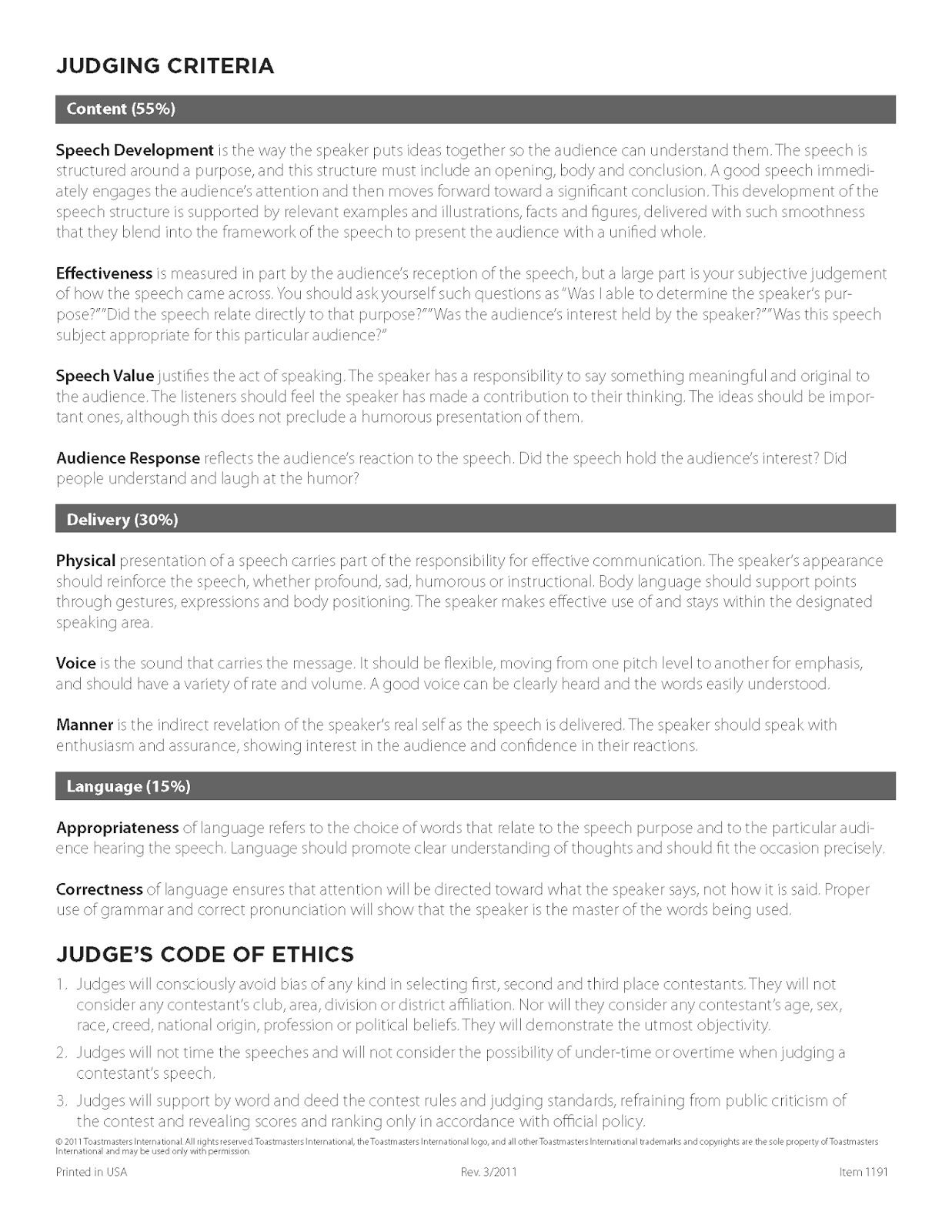This Toastmaster is attempting the Competent Communicator project #3: Get To The Point (click here for the objectives).
This speaker entices the audience interest by asking a series of questions;
“Would you like to go back in time?”
“Would you like to re-live the special moments in our lives?”
“Would you like to revisit the special places in the right time?”
“Would you like to be a Time Traveller?”
If the audience answers positively again, he shares three simple steps to achieve that objective;
Step #1: Find a rich investor to fund the project
Step #2: Find a mad scientist to build the time machine
Step #3: When you successfully manage to travel back in time, do not ruin the speaker’s future.
The speaker brings the audience back to reality, stating that (presently) Time Travelling only exist in the movies. He sort for examples of movies that has time travelling as part of story and the audience reported.
He proceeds to share his perspective of time travelling that one can actually travel back in time. We will not be able to change anything of the past, but one can learn from it. He shares that scientist named this ability ‘Mental Time Travelling’ - which is a study of the brain about the past to predict the future outcome. If one is interested, they can search the Internet.
He then progress to share his version of ‘Mental Time Travelling’ and ask if the audience can recall what they did in the morning. One of the audience decided to demonstrate what he was doing by making snoring noises. The speaker was unshaken and continue with his presentation. He asked whether the audience can recall what they saw, heard, smell and physically touched in the morning. Most of the audience are unable to recall and the speaker pointed it out to be normal. This is because things have become routine, and we start being on ‘autopilot’. This automated pace or mode, the speaker points out is a failure to appreciate life and the life around us.
He shared that it is important to recognize or to make an experience ‘special’. When an experience is deemed to be ‘special’, we can recall it easily in then on and in the future. He gave a few examples in a humorous manner.
He illustrated his point by sharing how he had ‘travel’ back to the past, back 8 years to his wedding day. He describe his (then) bride-to-be, the emotions that were running through his head, and the situation around him.
At the conclusion he shares the benefits of ‘Mental Time Travel’, that these short trips to happy moments in the past can uplift ones spirits. When one is down, one can recall the successes and challenges that were overcome to give him strength to face current challenges. Indirectly if we wish to have happier memories, we will then focus to make the future brighter for us to recall them later.
OBSERVATIONS:
Strengths of the speaker
- This speaker is able to use pauses effectively to allow the audience to response as well as to allow his points to sink in.
- He has a very good ‘poker’ (straight) face when he delivers his punch lines and this adds to the humorous aspects of his presentation.
- He is able to use descriptive words well to help the audience to imagine the surroundings that he is sharing about.
Some suggestion for improvement
- The speaker could increase his speaking rate a bit as there were some parts of the presentation, the delivery became draggy (slow).
- There are some moments the speaker appeared to had momentarily forgotten his lines. With a bit more practice, I believe this can be avoided.
I felt the speaker was able to present an entertaining speech while delivering some important messages;
- about how we should not to take things for granted.
- That we should not to just go through the daily routine or motion, but to live and appreciate each moment as special.
- To make memories that are worth recalling in the future.
How about you? What do you think are the strengths of the speaker, and suggestions you will give to the speaker? Please feel free to comment below.
Disclaimer: The observations above about the strengths and suggestions are the personal opinion of the writer and does not constitute as to what is the right (or wrong) way of presenting a speech or the project intended. The purpose for these observations are for us to be self-aware of our styles, and how we can bring our presentation skills to the next level.

